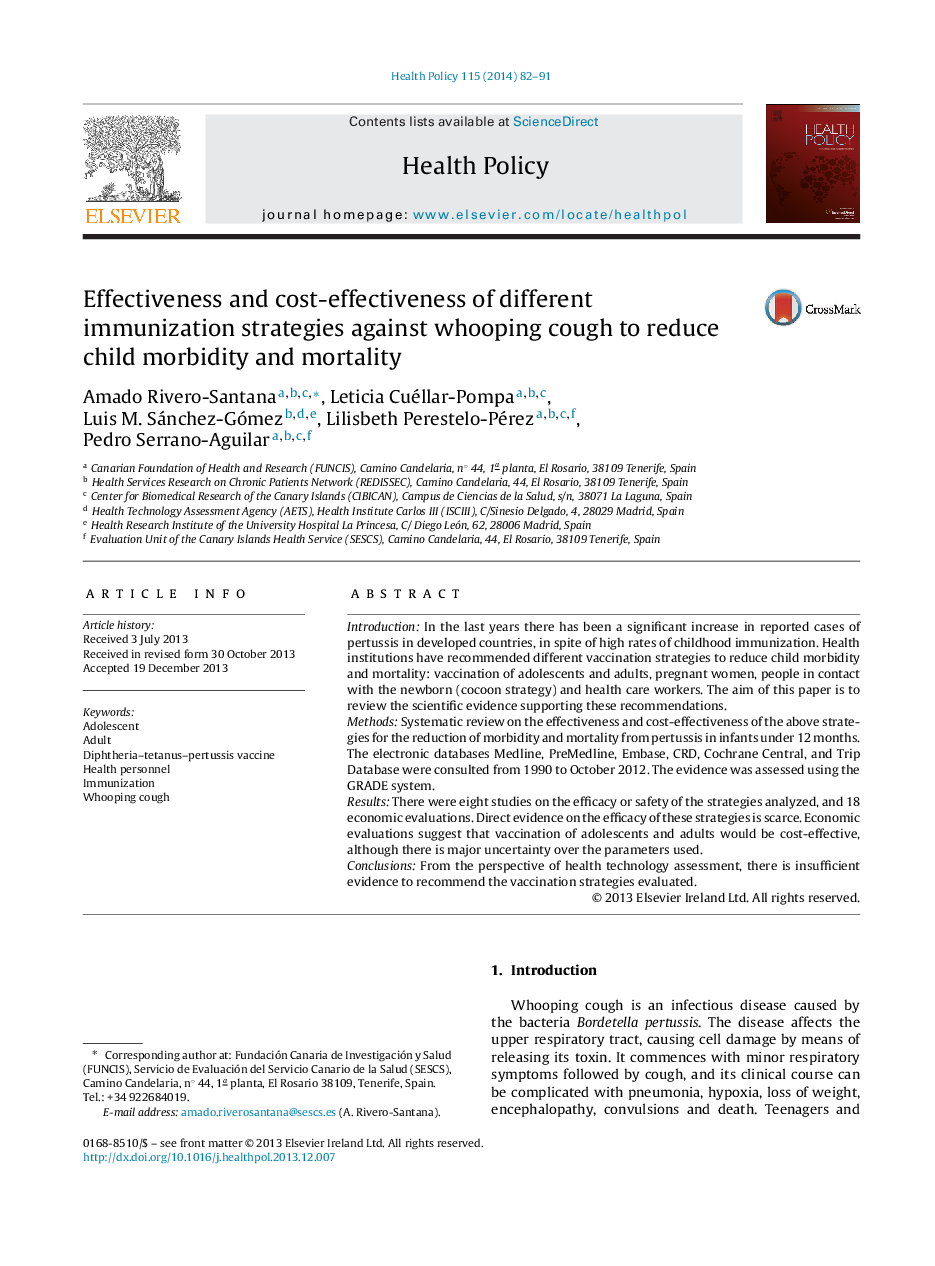| Article ID | Journal | Published Year | Pages | File Type |
|---|---|---|---|---|
| 6239653 | Health Policy | 2014 | 10 Pages |
IntroductionIn the last years there has been a significant increase in reported cases of pertussis in developed countries, in spite of high rates of childhood immunization. Health institutions have recommended different vaccination strategies to reduce child morbidity and mortality: vaccination of adolescents and adults, pregnant women, people in contact with the newborn (cocoon strategy) and health care workers. The aim of this paper is to review the scientific evidence supporting these recommendations.MethodsSystematic review on the effectiveness and cost-effectiveness of the above strategies for the reduction of morbidity and mortality from pertussis in infants under 12 months. The electronic databases Medline, PreMedline, Embase, CRD, Cochrane Central, and Trip Database were consulted from 1990 to October 2012. The evidence was assessed using the GRADE system.ResultsThere were eight studies on the efficacy or safety of the strategies analyzed, and 18 economic evaluations. Direct evidence on the efficacy of these strategies is scarce. Economic evaluations suggest that vaccination of adolescents and adults would be cost-effective, although there is major uncertainty over the parameters used.ConclusionsFrom the perspective of health technology assessment, there is insufficient evidence to recommend the vaccination strategies evaluated.
